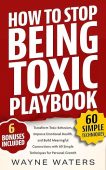When it comes to purchasing a new book for your Kindle, you want to make sure that you are really going to enjoy the book. Most of us look at the cover, read the book description and then read the book’s reviews. It’s the 3-step process to deciding on a new book.
We rely heavily on what other readers think about the book to help us make the right decision. But what if these reviews are not legitimate or honest? What if they are fake? What the five-star review is there solely to trick you into buying the book or to get more exposure on Amazon. What if it’s a one-star review placed there by a competitor? Nobody wants fake reviews. While Amazon claims that about 1% of reviews are fake other sources claim that upto 40% are fake. Amazon hates them and makes attempts to stop fake reviews, but plenty get through. So what you should do?
This article will teach you to spot fake reviews, so you can weed out the noise. If you want to avoid fake reviews that might influence your book purchase, then consider these signs that often indicate a bogus review.
Short in Length
When you are trying to determine whether or not a book review might be fake, consider the length of a review. If a reviewer is simply trying to boost the overall rating for a book, they might give it five stars and then fill in a simple, perfunctory sentence or two to fulfill the review requirements.
Generic Sounding
If the review seems vague and generic, as though it could be applied to any number of books, chances are it might a fake review. Authentic reviews typically include key information about the style, author, or even the plot of the book, and they can only be applied to the book being described.
Black or white positioning
Watch out for words that position a book or item as 100 percent good or bad. Words like “best ever” or “perfect” or “great” are giveaways. Trustworthy reviews tend to stay somewhat objective and go into detail about the pros and cons.
Many reviews in 3-5 day period
If the item has many 5-star reviews all in short period of time, those reviews might be fake.
Unsolicited Recommendations
If someone genuinely does not enjoy a book they purchased, it is normal for that person to leave a review detailing what they did not like about the book or author. However, it is not normal for a reviewer to leave negative review about a book and/or author coupled with a glowing recommendation for a different book or author.
If you are looking through book reviews on Amazon, be wary of reviews that use one or two sentences to explain how the book was unsatisfactory and a full paragraph suggesting a different book and providing details about how great another book is instead.
Incentivized reviews
If a reviewer was given the book for free or offered some other form of compensation in exchange for their review, they are obligated to note that arrangement in the review. Incentivized reviews are not fake but read them with some discretion.
Very short reviews
Very short reviews, such as one sentence reviews, with poorly written or short titles, can sometimes be hallmark of a fake or paid for review.
Suspicious Reviewer Profile
If you are unsure about a specific review, or you just want to make sure a reviewer is trustworthy, you can look at the reviewer’s profile. When you click on a reviewer’s name, you can see their profile. This profile will give you key information that can help you determine whether their book review is legitimate.
One of the first metrics shown on a reviewer’s profile is their reviewer ranking. This ranking is determined by the relationship between the overall helpfulness of their reviews and the amount of reviews they have created. If a person’s reviewer ranking is low, you might want to reconsider the trustworthiness of their reviews.
A reviewer’s profile also lists their review history. Take a look at their recent reviews. Have they only written reviews on books written by the same author? Is this the only review they have ever posted? Are all of their reviews short and glowing or negative or pushing recommendations for other books? If the answer to any of these questions is yes, then you might be reading a fake review.
The Fake Review Test
Because there are so many illegitimate reviews on Amazon and other websites that heavily rely on reviews, tools have been created to help consumers spot fake reviews.
ReviewMeta.com is a website that analyzes all of the reviews on an Amazon product and shows you which reviews you should and should not trust. Simply paste the product URL into their search bar and, within seconds, you will receive an adjusted overall rating of the reviews, including the most trusted reviews, least trusted reviews, and other analytics. Reviews are scored as pass, warn, or fail for trustworthiness. This site will even provide you with data about phrase repetition and word count within the reviews.
Fakespot is another useful tool for spotting fake reviews. After submitting the product URL, you will receive a Fakespot review grade as well as a review rating content quality and the most used words. If a book’s reviews are not deemed credible by either of these sites, think twice before you buy it.
thereviewindex lets you paste in the Amazon product’s link and it gives yuo a score for the page’s reviews.
The Paid Review Scam on Amazon
There are some sellers, though typically not book sellers, who will refund the purchase amount of a product in exhange for a 5-star review. The process works like this, the vendor or seller let’s a group of people know that if they buy certain products and then leave a 5-star review, those people can submit proof of the 5-star review and get a refund via PayPal details. This review scam was uncovered by SafetyDetectives.
Because the refund is given through PayPal and not directly through Amazon’s platformit does not trigger suspicion from Amazon.
Did you buy a book based on glowing reviews and it turns out that the book is not too good? You can always return it for a refund. See the article How to Return Kindle Books.
Reporting Suspcious Reviews on Amazon
If you are reading a review that you find suspcious, you can report it to Amazon by clicking the “Report” button below the review, then select an option such as “fake”, the click submit.
How Amazon Counters Fake reviews
Acording to VPNMentor Amazon’s Fraud Abuse and Prevention team uses AI to find and remove out fake reviews based on account’s review history, sign-in activity, and other factors. Amazon blocks 100s of millions of fake reviews annually.
Interested in free and discount Kindle books, visit Just Kindle Books to find over 70,000 free Kindle books.












